Georges Pompidou
Georges Jean Raymond Pompidou (/ˈpɒmpɪduː/ POMP-id-oo, French: [ʒɔʁʒ pɔ̃pidu] (![]() listen); 5 July 1911 – 2 April 1974) was a French politician who served as President of France from 1969 until his death in 1974. He previously was Prime Minister of France from 1962 to 1968—the longest tenure in the position's history. He had long been a top aide to President Charles de Gaulle; as head of state, he was a moderate conservative who repaired France's relationship with the United States and maintained positive relations with the newly independent former colonies in Africa.
listen); 5 July 1911 – 2 April 1974) was a French politician who served as President of France from 1969 until his death in 1974. He previously was Prime Minister of France from 1962 to 1968—the longest tenure in the position's history. He had long been a top aide to President Charles de Gaulle; as head of state, he was a moderate conservative who repaired France's relationship with the United States and maintained positive relations with the newly independent former colonies in Africa.
Georges Pompidou | |
|---|---|
.jpg.webp) Pompidou in 1969 | |
| President of France | |
| In office 20 June 1969 – 2 April 1974 | |
| Prime Minister | Jacques Chaban-Delmas Pierre Messmer |
| Preceded by | Charles de Gaulle |
| Succeeded by | Valéry Giscard d'Estaing |
| Prime Minister of France | |
| In office 14 April 1962 – 10 July 1968 | |
| President | Charles de Gaulle |
| Preceded by | Michel Debré |
| Succeeded by | Maurice Couve de Murville |
| Member of the Constitutional Council | |
| In office 5 March 1959 – 14 April 1962 | |
| Appointed by | Charles de Gaulle |
| Preceded by | Office established |
| Succeeded by | Bernard Chenot |
| Personal details | |
| Born | Georges Jean Raymond Pompidou 5 July 1911 Montboudif, France |
| Died | 2 April 1974 (aged 62) Paris, France |
| Resting place | Orvilliers Cimetiere Orvilliers, France |
| Political party | Union for the New Republic (Before 1968) Union of Democrats for the Republic (1968–1974) |
| Spouse(s) | |
| Children | Alain |
| Alma mater | École Normale Supérieure Sciences Po |
| Military service | |
| Allegiance | |
| Branch/service | French Army |
| Years of service | 1940 |
| Rank | Lieutenant |
| Unit | 141st Alpine Infantry Regiment |
| Battles/wars | Second World War |
| Awards | |
He strengthened his political party, the Union of Democrats for the Republic ("Union des Democrates pour la République" or UDR), to make it a bastion of the Gaullist movement. Pompidou's presidency is generally held in high esteem by French political commentators.
Biography
Georges Jean Raymond Pompidou was born on 5 July 1911[1] in the commune of Montboudif, in the department of Cantal in central France.[2] After his khâgne at Lycée Louis-le-Grand, where he befriended future Senegalese poet and statesman Léopold Sédar Senghor, he attended the École Normale Supérieure, from which he graduated with a degree of agrégation in literature.
He first taught literature at the lycée Henri IV in Paris until hired in 1953 by Guy de Rothschild to work at Rothschild. In 1956, he was appointed the bank's general manager, a position he held until 1962. Later, he was hired by Charles de Gaulle to manage the Anne de Gaulle Foundation for Down syndrome (de Gaulle's daughter Anne had Down syndrome).
Prime Minister
Jacques Chirac served as an aide to Prime Minister Pompidou and recalled:
The man gave the appearance of being secretive, wily, a little cunning – which he was, to a degree. However, it was primarily his intelligence, culture, and competence that conferred indisputable authority on him and commanded respect.... I remember his untamed eyebrows, his penetrating, very kindly gaze, his perceptive smile, full of humour and mischievousness, his voice with its wonderful low, warm, gravelly tone, and a figure that was both powerful and elegant. Naturally reserved, little given to emotional outbursts, Pompidou did not forge very close ties with his colleagues.[3]

He served as prime minister of France under de Gaulle after Michel Debré resigned, from 14 April 1962 to 10 July 1968, and to this day is the longest serving French prime minister under the Fifth Republic. His nomination was controversial because he was not a member of the National Assembly. In October 1962, he was defeated in a vote of no-confidence, but de Gaulle dissolved the National Assembly. The Gaullists won the legislative election and Pompidou was reappointed as Prime Minister. In 1964, he was faced with a miners' strike. He led the 1967 legislative campaign of the Union of Democrats for the Fifth Republic to a narrow victory. Pompidou was widely regarded as being responsible for the peaceful resolution of the student uprising of May 1968. His strategy was to break the coalition of students and workers by negotiating with the trade-unions and employers (Grenelle conference).
However, during the events of May 1968, disagreements arose between Pompidou and de Gaulle. Pompidou did not understand why the President did not inform him of his departure to Baden-Baden on 29 May. Their relationship, until then very good, would be strained from then on. Pompidou led and won the 1968 legislative campaign, overseeing a tremendous victory of the Gaullist Party. He then resigned. Nevertheless, in part due to his actions during the May 1968 crisis, he appeared as the natural successor to de Gaulle. Pompidou announced his candidature for the Presidency in January 1969. Some weeks later, his wife's name was mentioned in the Markovic affair, thus appearing to confirm her husband's status as a cuckold. Pompidou was certain that de Gaulle's inner circle was responsible for this smear.
In social policy, Pompidou's tenure as prime minister witnessed the establishment of the National Employment Fund in 1963 to counter the negative effects on employment caused by industrial restructuring.[4]
President
After the failure of the 1969 constitutional referendum, de Gaulle resigned and Pompidou was elected president of France.[5] In the general election of 15 June 1969, he defeated the centrist President of the Senate and Acting President Alain Poher by a wide margin (57%–42%).[6] Though a Gaullist, Pompidou was more pragmatic than de Gaulle, notably facilitating the accession of the United Kingdom to the European Community on 1 January 1973. He embarked on an industrialisation plan and initiated the Arianespace project, as well as the TGV project, and furthered the French civilian nuclear programme. He was sceptical about the "New Society" programme of his prime minister, Jacques Chaban-Delmas. In 1972, he replaced Chaban-Delmas with Pierre Messmer, a more conservative Gaullist. While the left-wing opposition organised itself and proposed a Common Programme before the 1973 legislative election, Pompidou widened his presidential majority by including Centrist pro-European parties. In addition, he paid special attention to regional and local needs in order to strengthen his political party, the UDR (Union des Democrates pour la Ve République), which he made a central and lasting force in the Gaullist movement.[7]
Foreign affairs
The United States was eager to restore positive relations with France after de Gaulle's departure from office. New US President Richard Nixon and his top adviser Henry Kissinger admired Pompidou; the politicians were in agreement on most major policy issues. The United States offered to help the French nuclear programme. Economic difficulties, however, arose following the Nixon Shock and the 1973–75 recession, particularly over the role of the American dollar as the medium for world trade.[8]
Pompidou sought to maintain good relations with the newly independent former French colonies in Africa. In 1971, he visited Mauritania, Senegal, Ivory Coast, Cameroon, and Gabon. He brought a message of cooperation and financial assistance, but without the traditional paternalism. More broadly, he made an effort to foster closer relations with North African and Middle Eastern countries in order to develop a hinterland including all nations bordering the Mediterranean.[9]
Modernising Paris
Pompidou's time in office was marked by constant efforts to modernise France's capital city. He spearheaded construction of a modern art museum, the Centre Beaubourg (renamed Centre Pompidou after his death), on the edge of the Marais area of Paris. Other attempts at modernisation included tearing down the open air markets at Les Halles and replacing them with the shopping mall of the same name, building the Montparnasse Tower, and constructing an expressway on the right bank of the Seine.
 Pompidou with U.S. president Richard Nixon in Reykjavík, 31 May 1973.
Pompidou with U.S. president Richard Nixon in Reykjavík, 31 May 1973.
Death in office
While still in office, Pompidou died on 2 April 1974, at 9 PM, while in his apartment,[10] from Waldenström's macroglobulinemia. His body was buried on 4 April, in the churchyard of Orvilliers, where he had bought an old baker's house which he turned into a weekend home.[11] The official memorial service for him was held at Notre-Dame de Paris with 3000 Dignitaries in attendance (including 28 heads of state and representatives from 82 countries).
Attendees included :
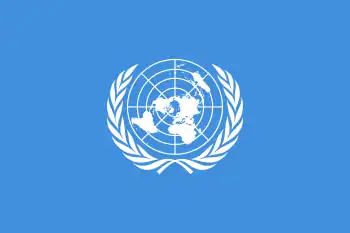 Secretary General of the United Nations Kurt Waldheim
Secretary General of the United Nations Kurt Waldheim Director General of UNESCO René Maheu
Director General of UNESCO René Maheu President of the European Commission Jean Rey
President of the European Commission Jean Rey Secretary General of NATO Joseph Luns
Secretary General of NATO Joseph Luns (Interim) President of France Alain Poher
(Interim) President of France Alain Poher President of the United States Richard Nixon
President of the United States Richard Nixon.svg.png.webp) Prime Minister of Canada Pierre Trudeau
Prime Minister of Canada Pierre Trudeau Prime Minister of the United Kingdom Harold Wilson and predecessor Edward Heath
Prime Minister of the United Kingdom Harold Wilson and predecessor Edward Heath Chancellor of West Germany Willy Brandt
Chancellor of West Germany Willy Brandt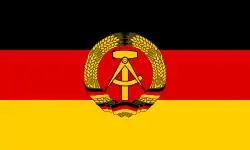 President of East Germany Manfred Gerlach
President of East Germany Manfred Gerlach Chancellor of Austria Bruno Kreisky
Chancellor of Austria Bruno Kreisky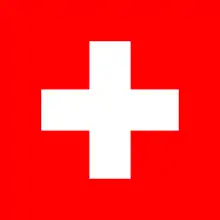 President of Switzerland Hans-Peter Tschudi
President of Switzerland Hans-Peter Tschudi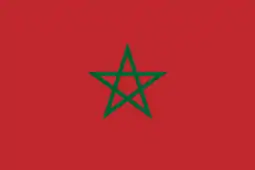 King Hassan II of Morocco
King Hassan II of Morocco.svg.png.webp) King Baudouin of Belgium
King Baudouin of Belgium Queen Juliana of the Netherlands
Queen Juliana of the Netherlands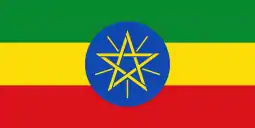 Emperor of Ethiopia Haile Selassie
Emperor of Ethiopia Haile Selassie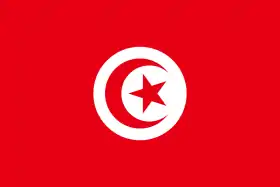 President of Tunisia Habib Bourguiba
President of Tunisia Habib Bourguiba President of Italy Giovanni Leone
President of Italy Giovanni Leone Prime Minister of Turkey İsmet İnönü
Prime Minister of Turkey İsmet İnönü President of Finland Urho Kekkonen
President of Finland Urho Kekkonen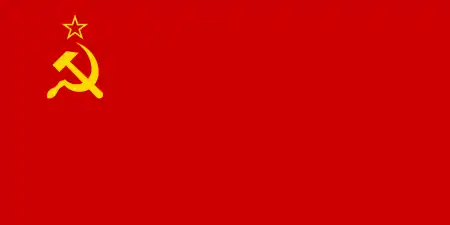 President of the Soviet Union Nikolai Podgorny
President of the Soviet Union Nikolai Podgorny.svg.png.webp) Prime Minister of Yugoslavia Petar Stambolić
Prime Minister of Yugoslavia Petar Stambolić President of Czechoslovakia Gustáv Husák
President of Czechoslovakia Gustáv Husák Prime Minister of Denmark Poul Hartling
Prime Minister of Denmark Poul Hartling Prime Minister of Sweden Olof Palme
Prime Minister of Sweden Olof Palme President of Portugal Americo Tomas
President of Portugal Americo Tomas Crown Prince Juan Carlos I of Spain
Crown Prince Juan Carlos I of Spain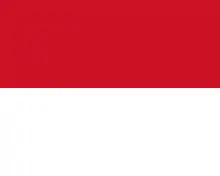 Rainier III, Sovereign Prince of Monaco
Rainier III, Sovereign Prince of Monaco Grand Duke of Luxembourg Jean
Grand Duke of Luxembourg Jean Prime Minister of Japan Kakuei Tanaka[12]
Prime Minister of Japan Kakuei Tanaka[12] Prime Minister of South Korea Kim Jong-pil[13]
Prime Minister of South Korea Kim Jong-pil[13]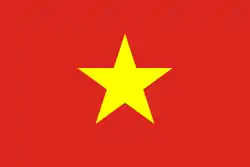 Foreign Minister of Vietnam Nguyễn Duy Trinh
Foreign Minister of Vietnam Nguyễn Duy Trinh President of South Vietnam Nguyễn Văn Thiệu
President of South Vietnam Nguyễn Văn Thiệu
Pompidou's wife Claude Pompidou would outlive him by more than thirty years.[14] The couple had one (adopted) son, Alain Pompidou, who went on to serve as president of the European Patent Office.[14]
France withdrew from the Eurovision Song Contest 1974, which took place just four days after Pompidou's death, as a mark of respect.[15]
Works
- Anthologie de la Poésie Française, Livre de Poche/Hachette, 1961
- Le Nœud gordien, éd. Plon, 1974
- Entretiens et discours, deux vol., éd. Plon, 1975
- Pour rétablir une vérité, éd. Flammarion, 1982
Medal
- Legion of Honour :
- Chevalier de la Legion of Honour : (France) (1948) ;
- Officier de la Legion of Honour : (France) (1957) ;
- Grand-croix de la Legion of Honour : 1969, grand-maître de l'ordre (France) (1969-1974, as president of the republic) ;
- Grand-croix de l'Ordre national du Mérite (France);[16]
- Grand Cross of Order of St. Olav (Norway) (1962) ;
- Grand Cordon of Order of Leopold (Belgium).[17]
- Honorary Knight Grand Cross of the Order of the Bath (United Kingdom) (1972)
- Knight Grand Cross with Collar of Order of Merit of the Italian Republic (1973).[18]
Ministries
Second ministry, 28 November 1962 – 8 January 1966
Changes
|
Third ministry, 8 January 1966 – 6 April 1967
|
Fifth ministry, 30 May – 10 July 1968
|
See also
| Wikimedia Commons has media related to Georges Pompidou. |
- Centre Georges Pompidou
- Lycée Français International Georges Pompidou - A French school in Dubai and Sharjah, United Arab Emirates
References
- "Fichier des décès – années 1970 à 1979" [Death file – years 1970 to 1979] (in French). National Institute of Statistics and Economic Studies. Retrieved 26 January 2021.
- Wall, E. H. (1976). "Pompidou, Georges Jean Raymond". In William D. Halsey (ed.). Collier's Encyclopedia. 19. Macmillan Educational Corporation. p. 236.
- Jacques Chirac, M Life and Politics" (2011) p 24
- Kresl, Peter Karl; Gallais, Sylvain (1 January 2002). France Encounters Globalization. Edward Elgar Publishing. ISBN 9781782543800.
- Robert J. Jackson, "The Succession of Georges Pompidou: The French Presidential Election of 1969, Political Quarterly (1970) 41#2 pp 156-168
- Berstein, Serge; Rioux, Jean-Pierre (2000). The Cambridge History of Modern France: The Pompidou Years, 1969–1974. Cambridge University Press. pp. 14–15. ISBN 9780521580618.
- Frank L. Wilson, "Gaullism without de Gaulle," Western Political Quarterly (1973) 26#3 pp. 485-506 in JSTOR
- Trachtenberg, 2001
- Edward A. Kolodziej, French Foreign Policy under de Gaulle and Pompidou: The Politics of Grandeur (1974).
- Robertson, Nan (3 April 1974). "President Pompidou Dead after almost Five Years as De Gaulle's Successor". The New York Times. Retrieved 3 April 2019.
- Kamm, Henry (5 April 1974). "Pompidou is Buried in Village Cemetery". The New York Times. Retrieved 3 April 2019.
- "Georges Pompidou Notre Dame Pictures and Images". Getty Images. 5 April 1974. Retrieved 3 April 2019.
- https://news.joins.com/article/1373294
- "Claude Pompidou". The Daily Telegraph. 5 July 2007. Retrieved 3 April 2019.
- "Brighton 1974". Eurovision. 2002–19. Retrieved 3 April 2019.
- He owns this decoration by right as President of the Republic.
- https://twitter.com/MonarchieBe/status/1063461459966025730
- https://www.quirinale.it/onorificenze/insigniti/34911
Further reading
- Bell, David et al. eds. Biographical Dictionary of French Political Leaders Since 1870 (1990) pp 346–349.
- Bell, David. Presidential Power in Fifth Republic France (2000) pp 105–26.
- Berstein, Serge; Jean-Pierre Rioux (2000). The Pompidou Years, 1969-1974. Cambridge UP. ISBN 9780521580618.CS1 maint: ref=harv (link)
- Demossier, Marion, et al., eds. The Routledge Handbook of French Politics and Culture (Routledge, 2019).
- Hibbs, Douglas A.; Vasilatos, Nicholas (1981). "Economics and Politics in France: Economic Performance and Mass Political Support for Presidents Pompidou and Giscard d'Estaing" (PDF). European Journal of Political Research. 9#2 (2): 133–145. doi:10.1111/j.1475-6765.1981.tb00595.x. Archived from the original (PDF) on 17 June 2015. Retrieved 17 June 2015.CS1 maint: ref=harv (link)
- Kolodziej, Edward A. (1974). French international policy under de Gaulle and Pompidou: the politics of grandeur. Cornell Univ Press.CS1 maint: ref=harv (link)
- Lauber, Volkmar (1983). The political economy of France: from Pompidou to Mitterrand.CS1 maint: ref=harv (link)
- Trachtenberg, Marc (2011). "The French Factor in US Foreign Policy during the Nixon-Pompidou Period, 1969–1974" (PDF). Journal of Cold War Studies. 13 (1): 4–59. doi:10.1162/JCWS_a_00073. S2CID 57559412.CS1 maint: ref=harv (link)
Offices and titles
| Legal offices | ||
|---|---|---|
| New office | Member of the Constitutional Council 1959–1962 |
Succeeded by Bernard Chenot |
| National Assembly of France | ||
| Preceded by Jean Sagette |
Member of the National Assembly for Cantal's 2nd constituency 1967 1968–1969 |
Succeeded by Jean Sagette |
| Succeeded by Pierre Raynal | ||
| Political offices | ||
| Preceded by Michel Debré |
Prime Minister of France 1962–1968 |
Succeeded by Maurice Couve de Murville |
| Preceded by Charles de Gaulle |
President of France 1969–1974 |
Succeeded by Valéry Giscard d'Estaing |
| Regnal titles | ||
| Preceded by Charles de Gaulle |
Co-Prince of Andorra 1969–1974 With Ramon Malla Call (Acting), then Joan Martí Alanis |
Succeeded by Valéry Giscard d'Estaing |
| Preceded by Ramon Iglesias i Navarri |
Succeeded by Ramon Iglesias i Navarri | |
| Catholic Church titles | ||
| Preceded by Charles de Gaulle |
Honorary Canon of the Archbasilica of St. John Lateran 1969–1974 |
Succeeded by Valéry Giscard d'Estaing |